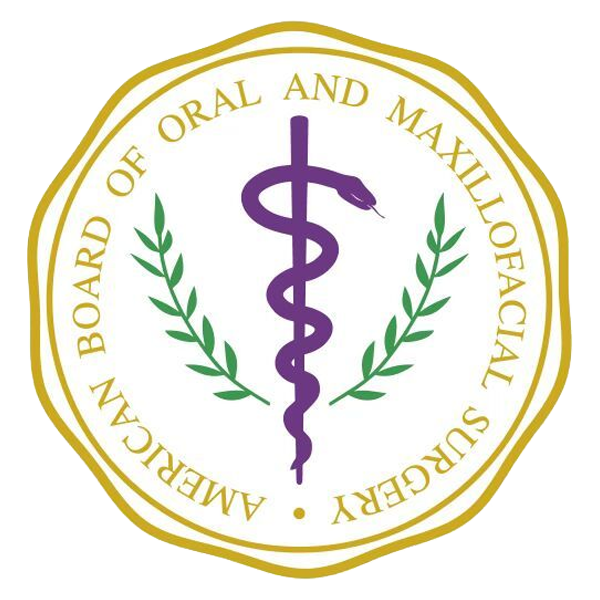What is the Difference Between a Dentist and an Oral Surgeon?
Two key figures in the field of oral health are dentists and oral surgeons. While both focus on oral care, their roles, expertise, and scope of practice vary significantly. Let's delve into the nuances that differentiate a dentist from an oral surgeon.
Dentist: The Primary Care Provider of Dentistry
Dentists are often referred to as the primary care providers for oral health. They specialize in diagnosing, preventing, and treating various dental conditions. Your regular visits to the dentist typically involve routine check-ups, cleanings, fillings, and basic dental procedures like root canals or tooth extractions.
Key Responsibilities of a Dentist:
- Preventive Care: Dentists emphasize preventive care to maintain optimal oral health. This includes regular cleanings, fluoride treatments, and educating patients on proper oral hygiene practices.
- Treatment of Dental Issues: Dentists address common dental problems such as cavities, gum disease, and tooth decay. They can perform procedures like fillings, crowns, and bridges to restore dental function.
- Cosmetic Dentistry: Some dentists offer cosmetic procedures like teeth whitening, veneers, and dental bonding to enhance the aesthetics of a patient's smile.
Oral Surgeon: The Surgical Specialist
On the other hand, oral surgeons, also known as oral and maxillofacial surgeons, are dental specialists who focus on surgical interventions related to the mouth, jaws, and face. They undergo extensive training beyond dental school to perform complex procedures with precision and expertise.
Key Responsibilities of an Oral Surgeon:
- Surgical Procedures: Oral surgeons are skilled in performing surgical interventions such as tooth extractions (including impacted wisdom teeth), dental implants, jaw realignment surgery, and corrective jaw surgery.
- Treatment of Trauma: In cases of facial trauma due to accidents or injuries, oral surgeons can reconstruct damaged facial structures and restore oral function.
- Management of Oral Pathologies: Oral surgeons diagnose and treat conditions like oral cancer, cysts, and tumors through surgical interventions.
Differentiating Between Dentists and Oral Surgeons
Educational Background and Training
Dentist:
Educational Path:
- Undergraduate Education: Prospective dentists typically complete a bachelor's degree in a science-related field before applying to dental school.
- Dental Admissions Test (DAT): Aspiring dentists must take the DAT as part of the dental school application process.
- Dental School: Upon acceptance, students undergo four years of education at an accredited dental school to earn a Doctor of Dental Surgery (DDS) or Doctor of Dental Medicine (DMD) degree.
- Licensing: After graduating from dental school, dentists must pass national and state licensing exams to practice.
Training Focus:
- General Dentistry: Dental school emphasizes comprehensive training in diagnosing, treating, and preventing common dental conditions.
- Clinical Experience: Students gain hands-on experience through clinical rotations and patient care under supervision.
- Continuing Education: Many dentists pursue continuing education courses to expand their knowledge and skills in specialized areas of dentistry.
Oral Surgeon:
Educational Path:
- Dental Degree: Oral surgeons begin their journey by completing the same educational requirements as dentists, and earning a DDS or DMD degree from dental school.
- Oral and Maxillofacial Surgery Residency: Following dental school, aspiring oral surgeons undergo a rigorous four to six-year residency program focused on surgical training in oral and maxillofacial surgery.
- Advanced Training: The residency includes rotations in anesthesia, trauma surgery, orthognathic surgery, and other specialized areas.
- Board Certification: Upon completion of the residency, oral surgeons may pursue board certification through the American Board of Oral and Maxillofacial Surgery.
Training Focus:
- Surgical Expertise: Oral surgeons receive specialized training in complex surgical procedures involving the mouth, jaws, and face.
- Anesthesia Management: They are trained in administering anesthesia and managing patients undergoing surgical interventions.
- Trauma Care: Oral surgeons acquire skills in treating facial trauma, reconstructive surgery, and addressing oral pathologies through surgical means.
While both dentists and oral surgeons play important roles in maintaining oral health, the key differences lie in their training, expertise, and the scope of procedures they perform. Dentists focus on preventive care and general dental treatments, whereas oral surgeons specialize in surgical procedures that require advanced skills and knowledge.
Choosing the Right Professional for Your Needs
When deciding between a dentist and an oral surgeon for your oral health needs, consider the nature of your condition. Routine check-ups, cleanings, and basic dental treatments are typically handled by a general dentist. However, for complex surgical procedures or specialized treatments, consulting an oral surgeon may be necessary.
Looking for Expert Oral Surgery Care in Troy, MI?
Troy Oral Surgery provides exceptional care through state-of-the-art oral surgical services. With expertise in both dentistry and medicine, Dr. Robert John offers a comprehensive approach to patient care. Contact us to schedule an appointment.
Troy Oral Surgery Address:
1500 W Big Beaver Rd Ste 110
Troy MI 48084
Phone:
248-665-8769
Office Hours:
Monday - Thursday 8 am - 5 pm
Friday 8 am - 3 pm
Saturday - Sunday Closed


